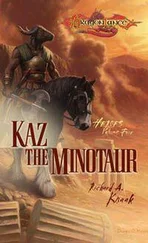Better not what? She put the key back. The table was still littered with the debris of dinner and I began clearing it on to a large tray Ida had left behind. Zorah watched me with an expression largely blank, slightly amused.
‘Good night,’ she said and went away, carrying the geode.
10
Sitting on the flat roof outside his room on that warm Saturday night, over a bottle of Riesling –Chardonnay as the default tipple was a long way in the future – Mark and I discussed the Cosways, he being by this time almost as interested in their doings as I was. I had asked him why he thought Zorah behaved as she did. Why did she, who could live anywhere, choose to spend so much time at Lydstep, a shabby house in a pretty enough but remote part of north Essex? What was the battle for the geode about?
‘It's for power,’ he said. ‘It's power she wants and she's got it. Don't ask me why because I don't know. I don't want power and I don't know why anyone else does. But they do.’
I told him what Isabel had said to me about Zorah's wealth and how it was far greater than I had thought at first.
‘From what you say about her comments on the whisky, she doesn't just give them an income over and above what they've got, she likes to remind them of it. She sounds a real bitch.’
‘I don't know. I wonder if she has some motive for doing this, dating back to her childhood. She's taken every pretty ornament out of her mother's house upstairs to those rooms of hers. And that's what I don't understand. She could buy anything she wanted, she could have far more valuable things.’
‘That's not the point, is it? Those are their things, things that have memories attached to them for Julia. Old people are like that. They look at some old vase or whatever and it reminds them of visiting Auntie in Broadstairs in 1915. Or else they had it as a wedding present. Taking those things upstairs must really hurt Julia whereas stuff Zorah bought, even very valuable stuff, wouldn't mean anything at all to her. And, incidentally, do you know what her name means?’
‘Whose name? Zorah?’
‘I looked it up when you first told me. I'd never heard it before.’ No Internet in those days, no easy reference. Mark had traced it through the Proper Names section of a Bible with a subject index and concordance he had found in Kensington Public Library. ‘It's not a woman's name at all. It means “a place of hornets”,’ he said. ‘Book of Joshua, chapter nineteen.’
‘Why would you call your little girl after a place of hornets?’
‘People just like the sound,’ said Mark. ‘Look at all those parents who call a boy Gideon. They don't know it means “a lame man” and if they did I don't suppose they'd care. Shall we have another bottle of wine?’
For power. The thought of it brought a shiver down my spine. Perhaps power always does and in that lies its appeal. And there are no two ways about power, no grey area but all black or white. If you want it you want it all, as much as you can get and where you can get it, but if you don't want it you are indifferent to the whole thing and simply fail to see the point.
It was an ugly picture, this girl with an offensive name which, once you knew what it meant, could only be seen as a reflection on her character, moving back once she was rich into the family home where she had perhaps been neglected, and exerting a kind of tyranny over those who remained there. But why had the Cosways so little money? Fairly obviously it was because Lydstep Old Hall cost a lot to run. They could surely have moved away, sold the house for a hotel or residential home, but they stayed. So what happened to the rents from the farmers who leased the land? What became of the money Mr Cosway left? Isabel had said there was a trust and perhaps it obliged them to stay.
Wills have to be published, no matter whose they are. Only the Royal Family are exempt. But I knew nothing of that until Mark told me and it was a while before I asked him. Back at Lydstep, I found Zorah had gone. It seemed that she and I had been in London at the same time, though in very different parts of it. Winifred was in the kitchen, making coffee for Eric, who had brought her back after Evensong. She immediately began telling me how Felix was going to paint a sign for the Rectory gate and she was to call on him and see his work. I thought it kinder not to remind her that I had been there when the arrangement was made.
Eric had to wait a long time for his drink. As soon as Winifred had started on the subject of Felix Dunsford she was unable to let it go. He was so charming, such an interesting man. She had been quite wrong about him. Of course he was eccentric, he was bohemian, but that was only to be expected from an artist.
‘I was wrong when I said he came to mock, you know. He was at Matins this morning again . But he was much more discreet about where he sat. I think he realized it was pushing it to sit in the front pew.’
It was rare for her to attend Evensong and I wondered if she had been only in the hope of his turning up again.
‘I'm quite excited at the prospect of seeing his work,’ she said. ‘I have a sort of intuitive feeling that he's good. We have so little real culture in this place, you know, Kerstin. It's a refreshing change to have someone like Mr Dunsford living amongst us. Would you like some coffee?’
‘No, thanks,’ I said. ‘It keeps me awake.’
But I went into the drawing room to say hallo to Eric. I expect it was my imagination which made me think he looked forlorn, reading the Sunday paper there in that barren place which might have been the lounge of a middle-grade Swedish country hotel. There was a brownness and a fawnness about it, a general shabbiness, not a book, not a cushion, only the seldom-emptied ashtrays, which made it hard to believe this was the living room of a county family. Poor Eric was not unsuited to it. Handsome as Winifred was pretty in a worn, unrealized sort of way, he too had a rather shabby air. I hoped she would iron his shirts and press his trousers; no one appeared to be doing it now. She brought his coffee and his glum face brightened. I wouldn't have believed that now she was with him she could go on talking about Felix Dunsford but she did.
‘Yes, he's a pleasant chap,’ was all Eric said but it was enough to stimulate her to further eulogies. Now it was to enthuse over the ease with which he had ‘got on’ with everyone at Lydstep, his graceful manners and, once more, his charm. Having had enough, I said good night and went off upstairs to the diary.
A few days later I expected more excesses from Winifred, for I had seen her come back from the village from John's bedroom while he was getting into bed. But she was strangely quiet, not only on the subject of Felix Dunsford and his works, but on any other. She sat by the French windows in the drawing room, apparently reading a cookery book, but spending most of the time, as far as I could tell, gazing into the garden and at the low hills and woods of north Essex beyond. Ella came home far later than usual from school. It was as if, unable to join Winifred at The Studio, she had decided to stay away as long as reasonably possible, perhaps to avoid hearing how her sister had enjoyed herself. But Winifred was unwilling to be drawn and answered her questions in monosyllables.
‘What do you mean by “Yes” when I ask you if his pictures are any good? How are they good? Are they abstracts? Representational? You don't know, do you? You know nothing about art.’
‘I never claimed to,’ said Winifred.
‘But you know what you like? Is that it? The trouble is that no one in this house is educated. Oh well, you are, I suppose, Kerstin, and Zorah is, for what that's worth, but you know what I mean.’
Читать дальше












